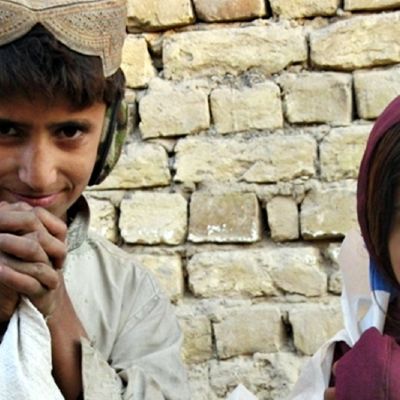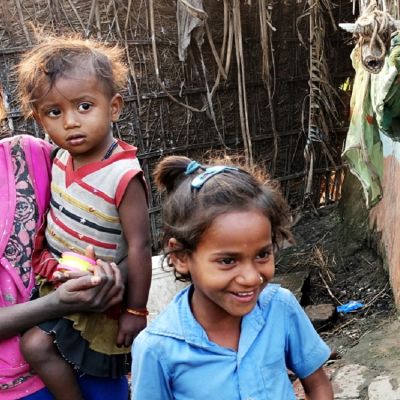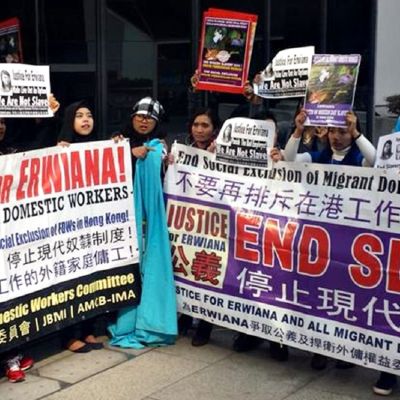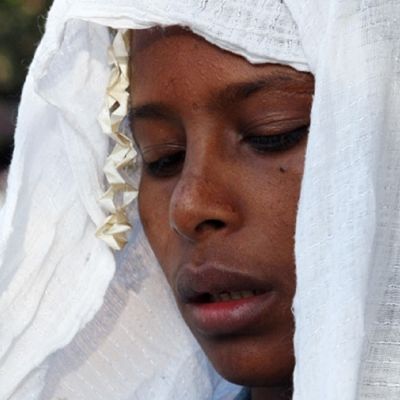Author: Jojo Poon
When we said we should respond to the grand problem of human trafficking, we often think of serving the victimised. However, the experience of frontline workers reminds us that the traffickers, though evil, also possess God’s image and are as deprived of care and love as the victims.
In March, Harmony Baptist Church, a long-time force in serving minorities and human trafficking victims in Hong Kong, hosted a seminar featuring Kevin Pettit, a counseling tutor, who shared about ways to walk alongside those who are struggling with sins and those who have been hurt deeply by others’ sins.
Walking with “Sinners”
To serve those who are struggling with sins, we need to first understand how they came to be in their circumstances. Kevin referred to the book of James chapter 3 to 4, and said temptation was like the sun and our desires were like seeds; the sun makes the long-buried seeds grow. When our desires are not fulfilled, we tend to have conflict, opposition, frustration and anxieties. We could not control ourselves because these desires have taken deep roots inside us.
Kevin stressed that we are all made to worship God, but if we don’t, we will find other idols to worship. In the Bible, the word “Heart” is used to describe our spiritual lives, including our souls, emotions and thoughts, where the seeds of our lusts or desires reside. God designed humanity to be manifested by our hearts and not our deeds. Therefore, we should lead our lives and actions with a heart that worships God, instead of letting them fall under the control of lusts.
He said, “If we’re not moulded by God, we’ll be moulded and enslaved by the things we worship. Therefore, we ought to let God mould us: all our thoughts and emotions.” Worshiping the right one in our daily lives would help us see His light and obtain wisdom that restore our fellowship with Him and, ultimately, bring us peace and blessings.
A frontline worker from our partnering organisation shared with us a real story some time ago. One time, they saw a pimp yelling at a young woman who worked for him on the street. They walked up to him and said, “You aren’t being your true self by being this violent. You’re not designed by God to treat people like this.” That person did not lash out on our colleagues right away, but instead kept in contact with them and attended Bible study with them. He eventually turned from his old ways and became a Christian. When God’s words enter our hearts, our lives begin to transform.
Walking with “Sufferers”
In the Old Testament, David’s daughter Tamar was raped by her half-brother Amnon. She was shamed and betrayed by the family she trusted. She was rejected and despised after the incident and felt desolated and worthless. Her brother Absalom and father David’s passivity put her in a powerless, voiceless and helpless condition, causing her ultimate hopelessness. The traumatised Tamar could no longer view herself as God’s beautiful creation with His image, and her sense of self-worth has changed after the traumatising harassment, just like the victims of sexual abuse today.
How could we bring hope to those amidst grave disappointment, fear, anger, and hopelessness? Kevin said that the only way is to lead them back to the Bible where they would be reminded of Jesus’ similar sufferings including betrayal, abuse, imprisonment, and torture. Jesus had gone through the same ordeals, so He understands and could be their strength to overcome their grief.
In his letters, Paul encouraged prostitutes and slaves to perceive their lives in a new way that was made possible by the Lord’s grace and mercy. When we are supporting those wounded by sins, it is critical to help them realise that even though they had been hurt and abused, they are a new person, for God has promised new life in Him and He has empowered us to be “conquerors” through Jesus Christ.
Kevin pointed out that to conquer traumas is not to forget them, nor to subdue the emotional reactions we have after the experience, but to trust and invite Jesus into our lives and walk through the past, present and future with us. As we grow in Christ and experience His salvation and renewal power, we will begin to view our traumatic memories with a different angle.
God’s mercy and grace is enough for the wounded to overcome their pains, and He can transform sufferings into unimaginable blessings, as described in Joseph’s words, “You intended to harm me, but God intended it for good to accomplish what is now being done, the saving of many lives.” (Genesis 50:20)
“We have to listen to their stories, as well as telling them the story of the everlasting God. We need to listen, and tell them God knows their stories and has the power and kindness to heal their wounds… Helping them to find God’s footprints in their past experience, and help them organise and express their agony, confusion, and feelings in front of God. Let them see how God is at work even when they’re grieving,” said Kevin.
Forgiveness is the key in overcoming the pain. God is merciful and gives salvation and forgiveness to all, including our oppressors. We can support victims by helping them to draw strength from His love and saving grace, so they could forgive the evil-doers as Christ has forgiven us.
Pray that God’s salvation and healing will come to the hearts of the “sinners”
and the “sufferers”, bringing restoration and reconciliation.
Content of this issue
Author: Jojo Poon Martha (obscured) spent her early years with her mother who worked as a sex worker in the red-light district of Mumbai, India. “At the age of 16, my mother met a guy when she was in Nepal. He said he could refer her to work at better places in the cities, and she ended up being sold to work at the red-light district in Mumbai.” With the help of a generous woman from her hometown, Martha was spared from having to suffer the same fate as her mother’s. “Every one of us could fall prey to human traffickers with a tiny change of situation,” as expressed time and again by the frontline workers serving sex…
Author: Roger Seth The Bible was written thousands of years ago but it has much to say about what we might see as a modern problem: human trafficking. We will look specifically at the story of Joseph in the book of Genesis, chapters 37–50. Make sure you are familiar with the story before reading this reflection or discussing it with a group. Sold by relatives Like so many victims of trafficking today, Joseph was sold by his own family. The fact that the Midianite caravan was ready to buy a slave to sell in Egypt (Genesis 37:26–28) tells us that the trade in people was already happening in the region at that time. Today, we are told, trafficking happens…
Barla (obscured), 12, was a student in Pastor Thomas’ tutorial class. She missed classes a few times, and Pastor Thomas started searching for her to no avail. He feared for the worst that she might be caught by traffickers, so he filed a case at the police station. The investigators soon found out that Barla’s parents had sold her to a pimp at the price of less than HK$16. This is the story of one of the trafficked children told by CEDAR’s partner, EFIC@R, located in northern India where human trafficking is prevalent. EFIC@R started serving in the Jharkhand State, Orissa State, and West Bengal in 2012, establishing support networks with local churches to protect vulnerable children and…
Author: Tsun Wan Yan It appears that Hong Kong has nothing to do with human trafficking, and our government did not sign the Protocol to Prevent, Suppress and Punish Trafficking In Persons. In fact, Hong Kong is a port and destination of sold human commodities, and it has been placed on the Tier 2 watch list (same ranking as Afghanistan, Cuba, and Tunisia) for two consecutive years in the Trafficking in Persons Report by the U.S. Department of State. The ranking describes a country that is experiencing a significant increase in human trafficking victims, and that no tangible measures were established by the authorities. The Hong Kong government denies it has a human trafficking problem, but the Erwiana abuse case in…
Author: Jojo Poon When we said we should respond to the grand problem of human trafficking, we often think of serving the victimised. However, the experience of frontline workers reminds us that the traffickers, though evil, also possess God’s image and are as deprived of care and love as the victims. In March, Harmony Baptist Church, a long-time force in serving minorities and human trafficking victims in Hong Kong, hosted a seminar featuring Kevin Pettit, a counseling tutor, who shared about ways to walk alongside those who are struggling with sins and those who have been hurt deeply by others’ sins. Walking with “Sinners” To serve those who are struggling with sins, we need to first understand how…







